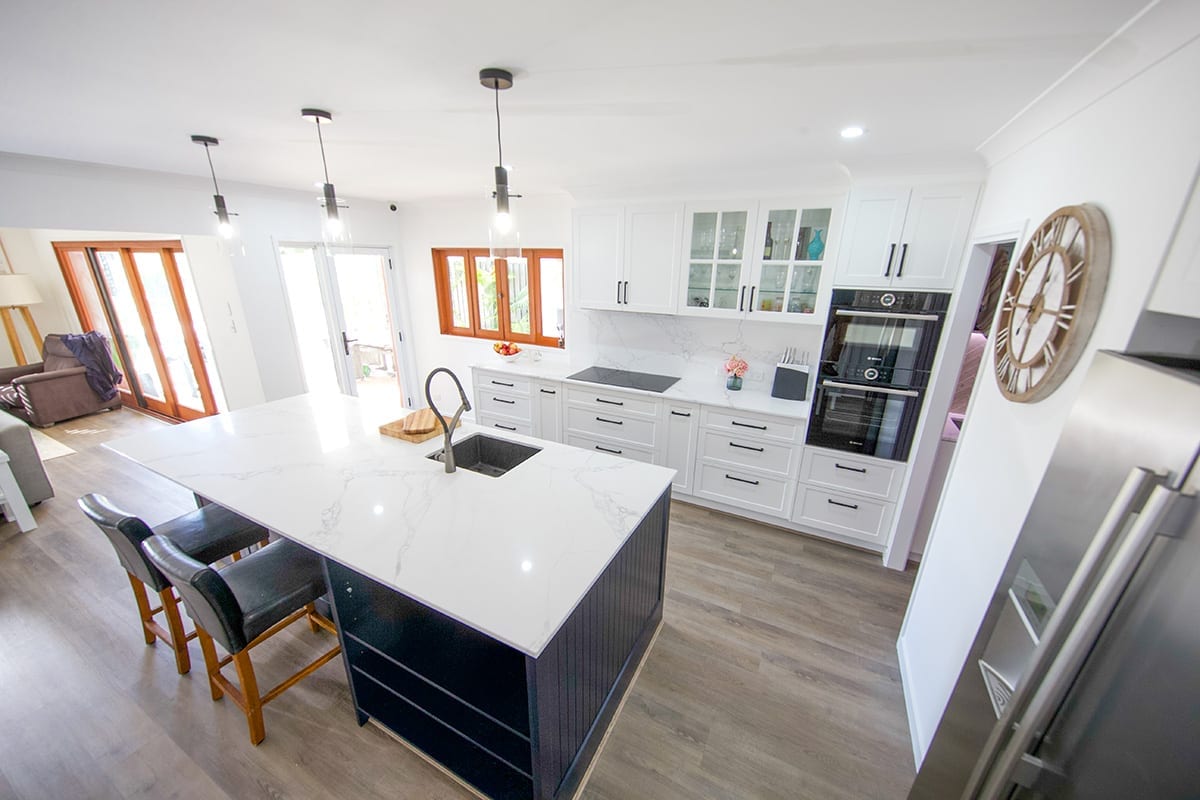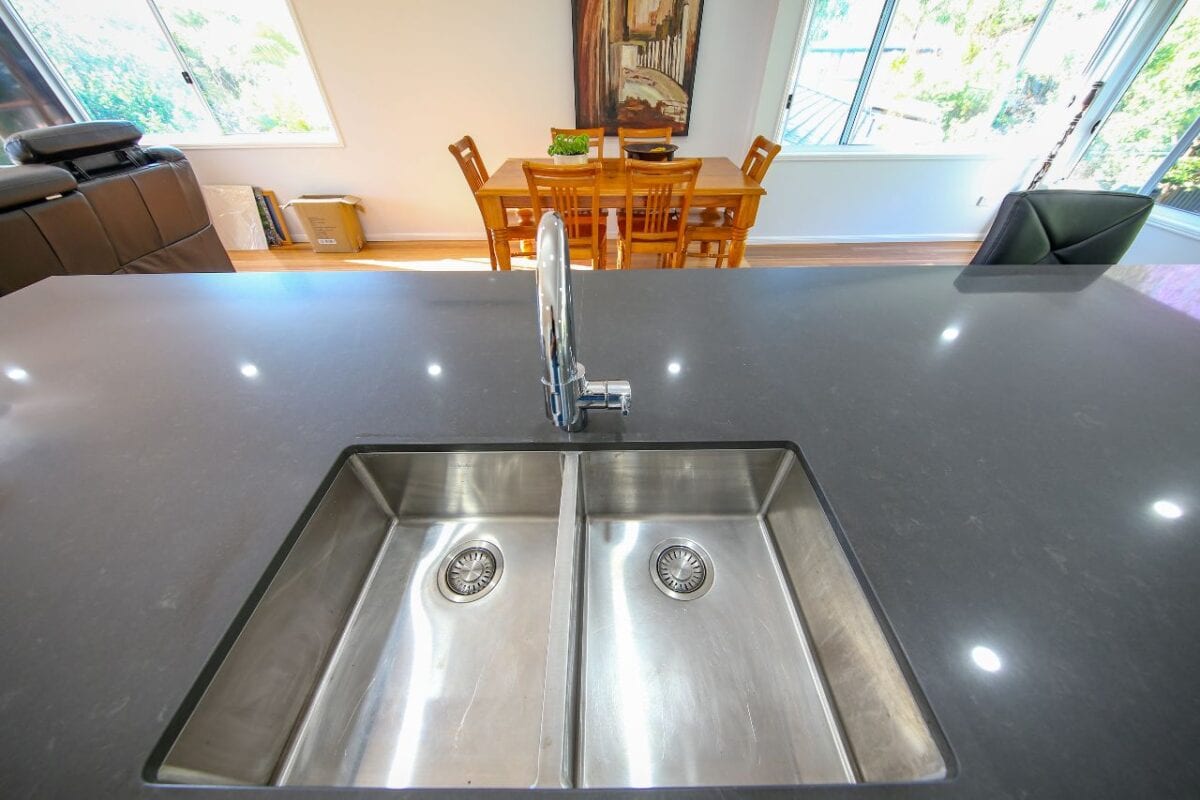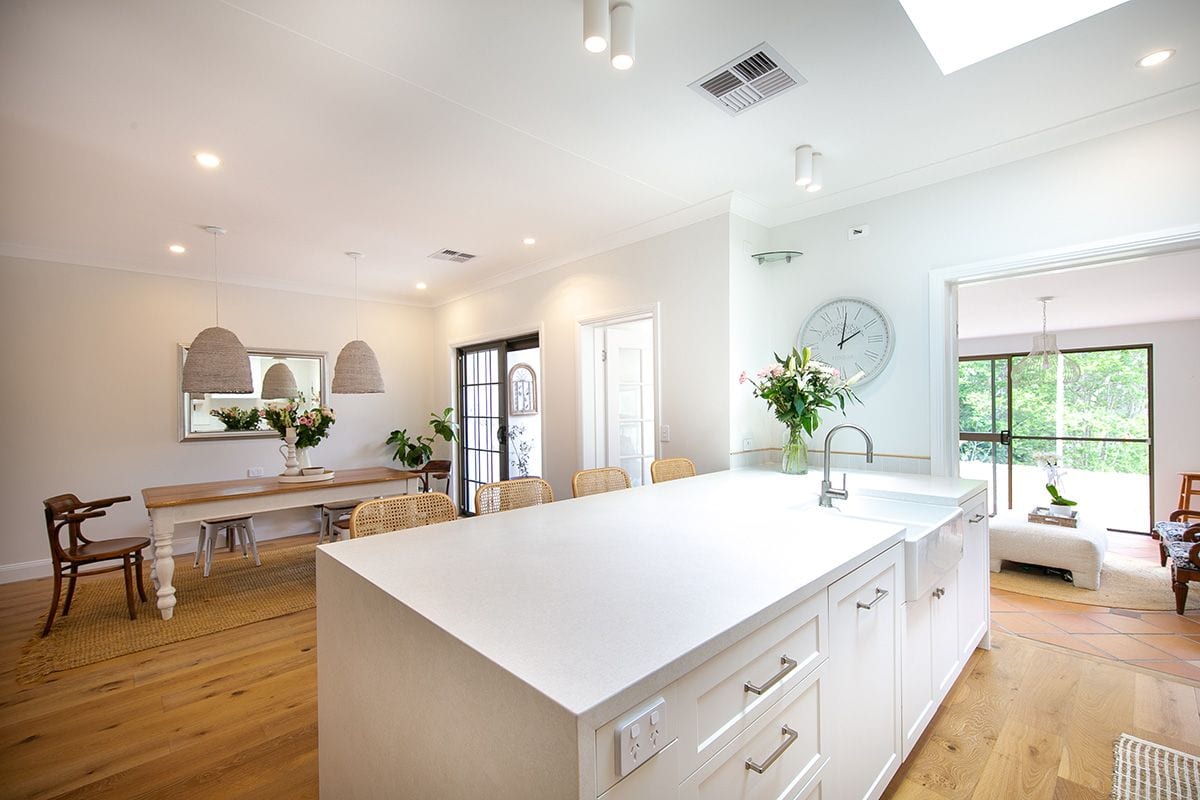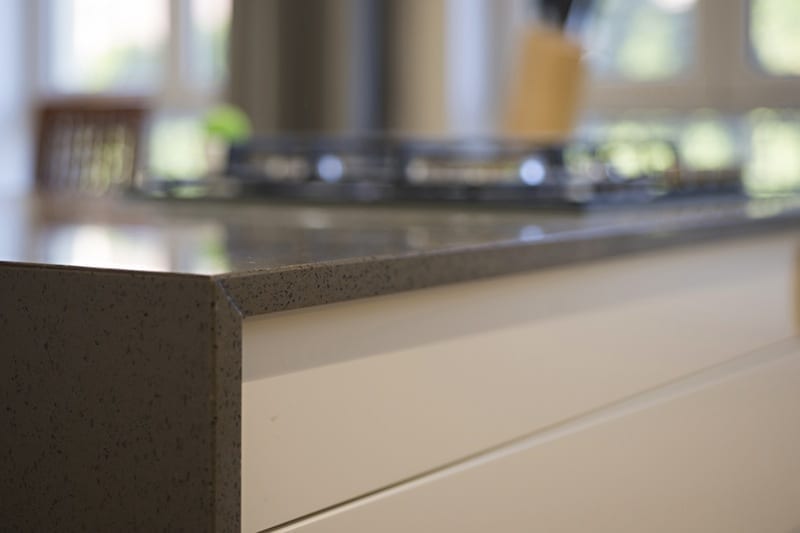Now that Australia has banned the use, supply and manufacture of engineered stone, you might be wondering about the alternatives for finding a durable and easy-to-clean benchtop material for your kitchen.
Kitchen benchtops can take up a large chunk of a kitchen renovation budget. However, the good news is that there are plenty of options, whether you’re on a champagne or beer budget.
What to Consider When Choosing a Benchtop Material
1. Cost
Engineered stone products, including brands such as Caesarstone, Silestone and Quantum Quartz, were popular as an affordable option for those wanting the look of marble and granite without the hefty price tag. Natural stone materials such as soapstone are high-end, whereas porcelain is more affordable, but requires specialist tradespeople for installation.
The rising cost of materials and fabrication has also seen stainless steel lose favor with homeowners as it now sits around the same price as stone.
Laminate products are a fantastic option that won’t blow the budget, and you might be surprised about the beauty of these products. For example, laminates are now available in many patterns, including those that mimic the appearance of natural stone.

2. Your lifestyle
If durability is a key consideration for your new kitchen, opting for a newer product on the market such as an ultra-compact benchtop might be a better way to go.
3. Aesthetics and kitchen style
One of the most crucial factors in selecting a benchtop is the character it will bring to the overall style of your home. It’s also important to match your chosen material with your cabinetry and floor type to create a cohesive look.
At Easy Living Kitchens, we offer free design consultations to help you choice the right investment for your home.
Our Top Benchtop Materials for Your New Kitchen
From high-end natural stone and porcelain to more affordable laminate options, each benchtop material has a unique appeal.
Strong, Ultra-Compact Benchtops
Stain, scratch and scorch-resistant, ultra-compact benchtops are made by putting raw materials found in glass, porcelain and quartz under heat and pressure to create an ultra-strong, non-porous material.
They can be made in a range of colour schemes with patterns that make them look like marble or cement.
Pros: Near-indestructible, require fewer joins as they’re made in large slabs, eco-friendly, easy to clean.
Cons: Expensive, can be hard to source in Australia as it’s a relatively new product.
Synthetic Solid Surface Benchtops
This option is made by pouring acrylic, stone, resin and other chemicals into a mould before being heated at high temperatures and formed into sheets.
Solid surface benchtops are extremely hard-wearing and resistant to scratches and stains and don’t chip or crack easily. However, they can be an expensive product to use in your kitchen.
Pros: Can be repaired and joined directly to the sink to avoid gaps where bacteria can grow.
Cons: Can suffer damage when exposed to some cleaning products and direct heat.

Porcelain Benchtops
The versatility of porcelain has led to more options becoming available in Australia. More affordable than natural stone but more expensive than engineered stone, porcelain benchtops can be made to resemble a wide range of materials.
Because of its strength and the fact it is non-porous and heat-resistant, porcelain looks set to be the next big thing in kitchens for those who want a high-end look. It’s made with clay and coloured pigments bonded at high temperatures and is available in different textures.
Pros: Incredibly strong; suitable for outdoor kitchens.
Cons: Prone to cracking upon installation; cabinetry needs to be strong to support its weight.
Natural Stone Benchtops
Because stone benchtops are a natural material, each slab is unique. At the high end of the price range, this porous material requires sealing to ensure it is resistant to heat and staining.
Stone is not the most durable benchtop material or the easiest to care for, but the look and feel of this natural material brings a sense of luxury and warmth to a kitchen.
Pros: Luxurious finish.
Cons: Prone to staining and scratching.
Laminate Benchtops
Costing a fraction of the price of other kitchen benchtop materials, technology means the appearance of laminate has changed a lot in recent years. It’s now available resembling popular styles of marble such as Calcutta and travertine, with realistic-looking veining.
It’s easily installed because it’s lightweight, it is readily available, and it comes ‘post-formed’ to wrap around benches, so it doesn’t peel.
Pros: Cost-effective; great looking; easy upkeep.
Cons: Prone to cuts, scratches and heat marks.
Concrete Benchtops
The demand for concrete benchtops has drastically decreased. They are porous, heavy and expensive and most customers choose a stone option with the same colouring.
Like stainless steel, concrete benchtops won’t suit every style of kitchen. The look and feel of your concrete bench will depend largely on the aggregates used, so it’s important to understand the process before choosing this material.
Pros: Makes a unique feature in your kitchen.
Cons: Requires ongoing maintenance; not very durable; expensive.
Need Help Choosing the Right Benchtop for Your Kitchen?

Renovating the kitchen in your Brisbane home? Don’t go it alone. Benchtops are just one decision you’ll have to make when it comes time to design your dream kitchen. Make the entire process easier by contacting Brisbane’s best kitchen renovation specialists.
Our locally manufactured, custom-designed kitchens suit all styles and budgets and our kitchen design service is here to help when it comes to choosing your ideal layout and materials. Contact us today on 1300 650 681 to take the first step towards your dream kitchen.

